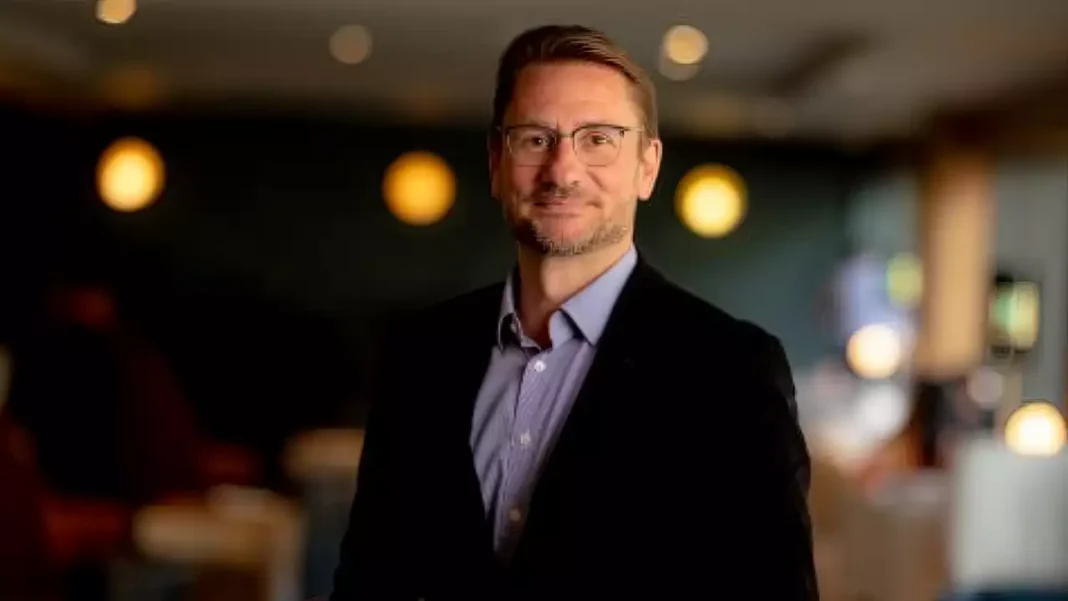London-based hotel management chain Yotel is in advanced discussions and evaluating opportunities to sign its maiden hotel project in India this year, according to its chief executive Hubert Viriot.
During an interview, he expressed, “The population density, the growth in domestic and international travel are factors that are conducive for us to be successful in India. Apart from looking at specific projects, we are also in advanced discussions with a number of groups for potential partnerships here. I am quite confident that we should succeed this year, and that we should be able to announce our first partnership here this year.”
Yotel operates hotels in prime locations including airports and city centers in various markets such as Singapore, London, New York, Istanbul, San Francisco, Washington DC, and Paris. Supported by the Al-Bahar Group and Starwood Capital Group, it collaborates with private equity funds, pension funds, and real estate developers to construct hotels designed for ‘Generation Go,’ targeting the needs of young professionals on the move.
Among its prominent corporate clients are FIFA, Adidas, IBM, Amazon, and Google. The company’s portfolio comprises three brands: Yotel, situated in city centers and urban locales; YotelPad, catering to extended stays; and YotelAir, designed for airports and transit hubs.
“We are doing well. We have a lot of institutional investors investing in Yotels. We have one million loyal customers and we have a competitive advantage in the sense that we know how to operate hotels around the airports very well,” said Viriot.
Continue Exploring: India’s hospitality industry toasts to 2024 with high hopes and record-breaking revenue growth
“So, we are evaluating if we could potentially be around the Delhi airport, for instance. We could also consider super high density markets such as Mumbai, as our hotel concept allows us to create value in such markets because of its efficiency in optimising real estate and from an operating point of view,” he said.
At present, Yotel operates 23 hotels worldwide, with an additional 13 hotels under construction.
“Our first airport hotel came up in London in 2008 and our first city hotel opened in New York in 2011. We will open hotels in Thailand and Japan this year, besides expanding into Malaysia and Indonesia next year,” said Viriot.
Viriot stated that the chain began with an ambitious vision, recognizing that the traditional paradigm of hospitality did not align with the needs of today’s or tomorrow’s consumer.
“Our target consumers are young and nomadic who are travelling for work as well as leisure. Our consumers are looking for value. So they could be customers that fly with IndiGo and want a fine experience at the right price,” he said. “They could probably be customers who say we want the same equivalent in a hotel with a great location, great room and good service but without the luxury price.”
Yotel’s rooms are efficient and smaller in size, but the fitouts, the design, the shower experience or the beds are all of high standard, he said, adding, “We would like to think of ourselves as operating in the affordable luxury segment.”
Viriot mentioned that to compensate for the smaller rooms, Yotel offers lounges where customers can work, play, or dine. “Basics are important. Customers want to stay healthy so we also provide a fitness centre. For our young customers, we want to make the entire experience very simple and flexible. So from the very beginning we embraced digitisation, and from booking and getting their key to communicating with the hotel, and from our marketing to CRM (customer relationship management), everything is digital,” he said.
Continue Exploring: Oyo Hotels in advanced talks with Khazanah Nasional Berhad for $400 Million funding boost
Viriot said the way people travel has changed a lot. “In the old days, people would expect that because you pay a lot, you should have a big room, or you should have people waiting for you when you arrive at the hotel who can carry your bag. But that’s changing in other markets and in India,” he said.
“You have a very young generation of consumers in India, who are extremely well informed, active on social media and they are changing the same way young Americans or the young Chinese are changing. Some traditional consumers may not like it, and that’s fine. We are talking to this huge generation of consumers who are looking for flexibility, transparency and the right value at a good price,” he added.


